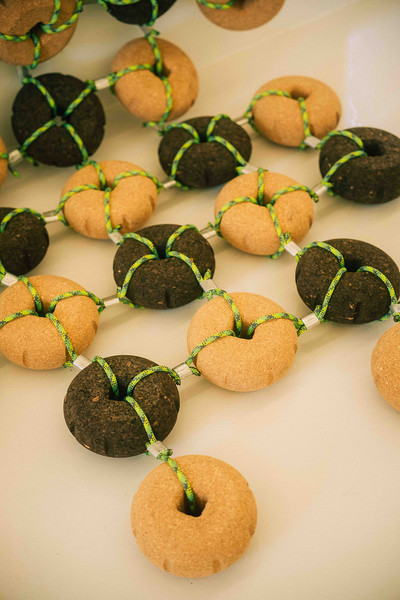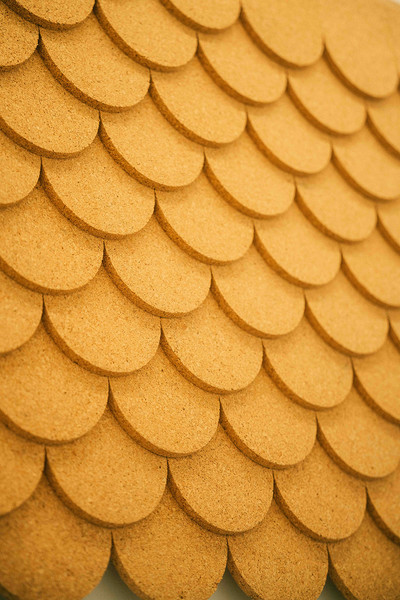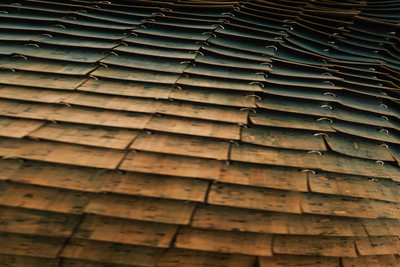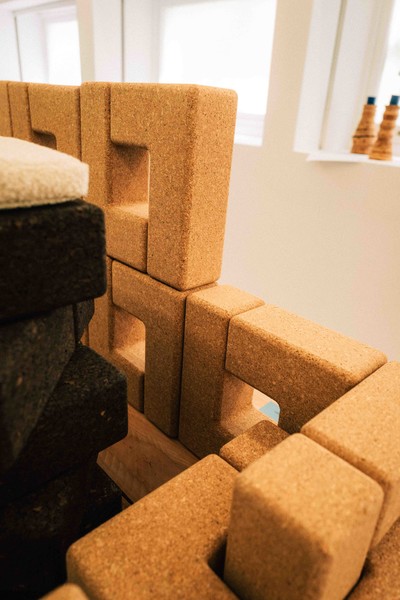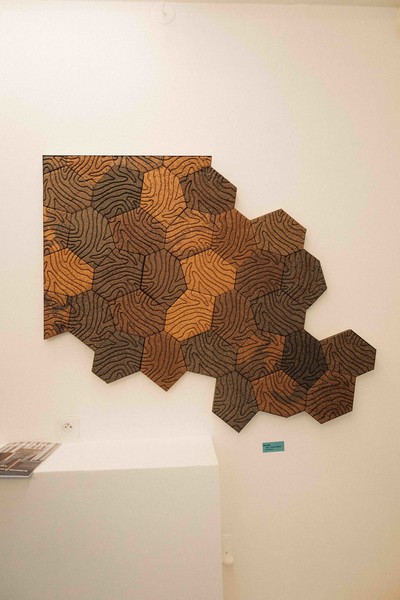Quercus Suber, Contemporary objects in cork from the Var
Under the enigmatic name of quercus suber lurks a major tree of the Mediterranean basin: the cork oak. Harvested for centuries in the Var region, it still populates the forests today and is found in many everyday objects in Provence. Think of the faouque (also known as a couasse) used to present bouillabaisse or the vegetables in aioli - as much a dish as an expression of the source it is made from: the raw cork bark that preserves the curve of the trunk. Once processed, cork can also be used in compressed or granulated form; it can be found in stoppers, trivets, and plates for construction. A thermal and sound insulator, non-flammable, antifungal, recyclable, light, and robust, its uses are seemingly endless since this material is rich in qualities.
Maintaining cork oak forests is essential to the local ecosystem, as they help slow down fires, stabilise the soil, and provide shelter for flora and fauna. However, over the last sixty years, cork harvesting, which allows the tree to regenerate, has almost disappeared in the Var. This activity requires a large workforce whose economic competitiveness is no match for that of neighbouring countries. The biological balance has been disrupted, businesses are closing, and skills and tools are disappearing.
However, renewed interest is growing thanks to the actions of the Forêt Modèle de Provence organisation, operating within a network of local, national, and European institutions. Among its initiatives is the organisation of the design competition whose projects are presented here. The designers are invited to create objects and furniture made mainly from cork. The villa Noailles co-organises the competition, bringing together a jury and two exhibitions (in May during the Cork Days, then throughout the summer during Design Parade). This showcase aims to restore the cork oak in all its cultural, artistic, and scientific aspects.
Since 2016, the arts centre and the organisation have successfully built up a local network of professionals, from farmers to the craftspeople who work with the material. The influence of this sustainable commitment is apparent in the new products made of cork from the Var: the Mass series of shelves by Dutch duo Odd Matter and the Chêne & Liège furniture line launched in 2023 by French designer Noé Duchaufour-Lawrance through his Made in situ editions.
This year, the designers in the competition are once again innovating through their designs and the creation of eco-friendly composite materials: reuse of waste from cork processing, pine needle powder, plant-based dyes, binders made from potato starch or suberin, which is naturally present in cork.
This new impetus offers production and distribution prospects, supported by craft and industry. It shows, if proof were needed, that cork maintains its rightful place in contemporary design.
The 2024 winners
JaM / Atelier Jérémy et Marie
Lucile Drouet, 2e prix
Tom Vincent, 3e prix
Joséphine Balayn, prix d’encouragement
The finalists
Théo Anthouard
Louna Benloulou, Rémy Brun, Oscar Courjaud et Julien Blatteau
Idris Janis
Léa Lavorel et Maxime Joost
Elisa Lorgues et Alixe Siffert
Stéphane Marguerite
Hervé Paraponaris
Vincent Sabes
The jury
Claire Fontaine, directrice du pôle culture et patrimoine de la ville d’Hyères
Armelle Boisson, designer textile, membre du Parcours des arts d’Hyères
Patrick Jouffret, designer industriel, fondateur de l’Atelier 360 à Toulon

